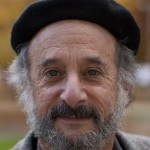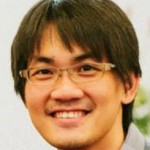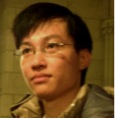The debate about the right to rule over territory has recently taken a prominent place among political philosophers. Yet, the three most prominent views on the right to rule over territory – a Kantian, a Lockean, and a nationalist view – unduly neglect the global dimensions that the debate about territory should integrate. They proceed as if one could assess the right to rule one state at a time. However, in my 2012 book On Global Justice, I present a theory of global justice that gives pride of place to humanity’s collective ownership of the earth. In this article, I argue that we can overcome the shortcomings of the Kantian, Lockean, and nationalist perspectives by applying my theory of global justice to the question of territorial rule. Specifically, I argue for the following theses. My theory provides us with the necessary conditions of a state’s right to rule that theorize any given state’s right to rule in a global perspective. Moreover, we also need to reconsider the core rationales for the existence of states articulated by the Lockean and Kantian approaches to the right to rule. Once we do so, we end up with an overall more plausible account of legitimate ways of taking up space on earth, one that theorizes territorial rights, the justification of states, and immigration from a unified and global standpoint.
Philosophy Seminar Series.
Date: Thursday, 15 Aug 2013
Time: 2pm – 4pm
Venue: Philosophy Resource Room (AS3 #05-23)
Speaker: Mathias Risse, Professor of Philosophy and Public Policy, John F. Kennedy School of Government, Harvard University
Moderator: Dr. Ben Blumson
About the Speaker:
 Mathias Risse is Professor of Philosophy and Public Policy at the John F. Kennedy School of Government at Harvard University, and currently NUSS Visiting Professor at the Lee Kuan Yew School of Public Policy at the National University of Singapore. He works mostly in social and political philosophy and in ethics. His primary research areas are contemporary political philosophy (in particular questions of international justice, distributive justice, and property) and decision theory (in particular, rationality and fairness in group decision making, an area sometimes called analytical social philosophy.) His books On Global Justice and Global Political Philosophy were published in 2012. His articles have appeared in journals such as Ethics; Philosophy and Public Affairs; Nous; the Journal of Political Philosophy; and Social Choice and Welfare. Risse studied philosophy, mathematics, and mathematical economics at the University of Bielefeld, the University of Pittsburgh, the Hebrew University of Jerusalem, and Princeton University. He received his BA, BS and MS in mathematics from Bielefeld, and his MA and PhD in philosophy from Princeton.
Mathias Risse is Professor of Philosophy and Public Policy at the John F. Kennedy School of Government at Harvard University, and currently NUSS Visiting Professor at the Lee Kuan Yew School of Public Policy at the National University of Singapore. He works mostly in social and political philosophy and in ethics. His primary research areas are contemporary political philosophy (in particular questions of international justice, distributive justice, and property) and decision theory (in particular, rationality and fairness in group decision making, an area sometimes called analytical social philosophy.) His books On Global Justice and Global Political Philosophy were published in 2012. His articles have appeared in journals such as Ethics; Philosophy and Public Affairs; Nous; the Journal of Political Philosophy; and Social Choice and Welfare. Risse studied philosophy, mathematics, and mathematical economics at the University of Bielefeld, the University of Pittsburgh, the Hebrew University of Jerusalem, and Princeton University. He received his BA, BS and MS in mathematics from Bielefeld, and his MA and PhD in philosophy from Princeton.
 Jay L Garfield is Kwan Im Thong Hood Cho Temple Professor of Humanities and Head of Studies in Philosophy at Yale-NUS College, and Professor of Philosophy at the National University of Singapore. He is also the Doris Silbert Professor in the Humanities and Professor of Philosophy at Smith College, Professor of Philosophy at the University of Melbourne and Adjunct Professor of Philosophy at the Central University of Tibetan Studies. He likes to think about the philosophy of mind, logic, Buddhist philosophy, Indian philosophy in the 19th and 20th centuries and cross-cultural interpretation.
Jay L Garfield is Kwan Im Thong Hood Cho Temple Professor of Humanities and Head of Studies in Philosophy at Yale-NUS College, and Professor of Philosophy at the National University of Singapore. He is also the Doris Silbert Professor in the Humanities and Professor of Philosophy at Smith College, Professor of Philosophy at the University of Melbourne and Adjunct Professor of Philosophy at the Central University of Tibetan Studies. He likes to think about the philosophy of mind, logic, Buddhist philosophy, Indian philosophy in the 19th and 20th centuries and cross-cultural interpretation.







